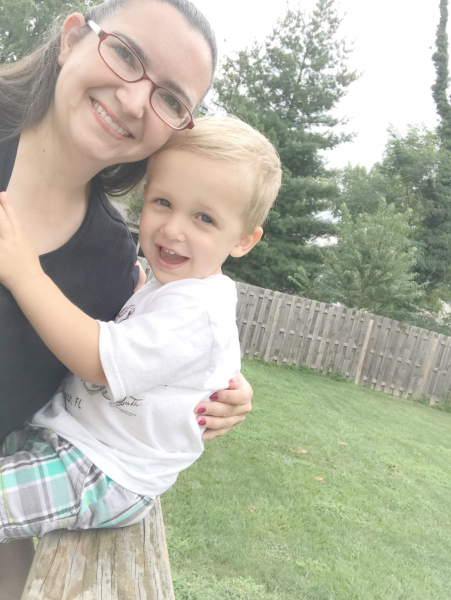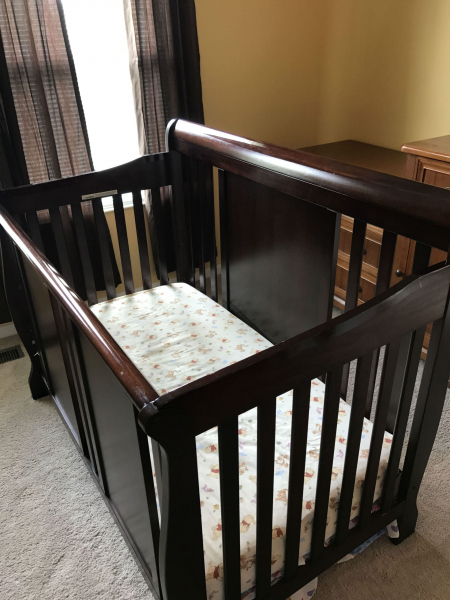7 Reasons Why You Need To Grieve Your Infertility Before Adopting

The loss of a child, or the inability to conceive a child is a pain that’s difficult to put into words. Everyone’s experience and grief is different and unique to them so it’s difficult to even say, “I know how you feel” or, “I know what you are going through.” No one knows exactly how another person feels. I can only speak from my own experiences and share how I feel in hopes that it may help someone else.
I am thankful that I took the time to grieve our loss prior to adopting. Here are a few reasons why I believe you also should grieve your infertility before adopting.
1. For Your Own Health
My experience with infant loss left an aching deep in my heart, through my entire soul, and changed who I was. I knew that I had to work through my grief if I was ever going to feel like myself again. No matter what the future held, I did not want to be that broken, bitter person for the rest of my life. I wanted to be whole again. I wanted to love myself and my life regardless of whether I ever had children or not. On my journey through the grief, I realized that once I’ve known and felt that loss and heartache, I can’t unknow it, but I can learn to live with it and live through it.
As with any grief, it is important to acknowledge it and work through the emotions before trying to move forward. Whether you intend to adopt or not, you still need to deal with the grief because it won’t just go away on its own. Once you grieve every part of the infertility, you can be in a healthier mindset and be the best version of yourself not only for you but for your spouse, family, and any children you may adopt.
2. So You Can Completely Invest In The Adoption
For you to move forward with adoption and be fully invested in the adoption plan you need to have grieved. If you are still in the process of grieving your infertility, you may not be able to fully commit to the adoption. You may still be wondering “what if” or longing for a pregnancy or biological child. It is perfectly natural to want to give birth to a child and that is one reason why infertility can be so devastating. It is important to fully grieve your infertility though, so that you can commit to your future adoptive children with the same level of desire and longing that you had for birth children.
3. So You Can Handle Future Grief
The adoption process can be long and arduous and involve more loss and grief that you need to be prepared to face. If you have not dealt with the first grief of infertility, it can be more difficult to endure the additional pain of a failed adoption, another month of no phone calls from the adoption worker, not being chosen as a match again, or having to say goodbye to your foster child you had hoped to adopt. After our loss, I was afraid to become a foster parent or adopt because I did not want to face any more pain and heartache. I thought if I had to say goodbye to one more child that it would just break me completely. Instead I realized that having been through the grief, I was stronger and more prepared to endure the future hardships we would face.

4. Because Adoption Doesn’t Replace The Loss
The instant I met our adopted son, I loved him completely, and in a sense, he filled the void in my heart and life. After all, I had a sweet baby boy to hold in my arms and I was busy taking care of him all the time. He consumed my whole world. As much as I love my adopted son, he did not replace the baby I lost. I am so thankful for a second son but I will never forget my other baby either. My heart is big enough to love them both and I wish they could both be here together. I often wonder what he would look like now, or what kind of big brother he would be. It still feels like a piece of my heart and family is missing. Adoption gave me my son but did not replace the loss. Take the time to grieve your loss and infertility because adoption will not erase all those feelings and pain.
5. Because Adoption Doesn’t Cure Infertility
Yes, I have heard numerous stories of couples who adopted children and then found out they were pregnant. I’m sure you have heard these stories too from everyone you know. The reality though is that adoption does not cure infertility. What a blessing for those people who have conceived after adoption. I am genuinely happy for their circumstances, but that will not be most people’s experience, nor is that necessarily what I would want. Bottom-line is that infertility will still be a part of your life after adoption. You will still have to deal with the grief, heartache and feelings of loss surrounding infertility after adoption, so take the time to grieve your infertility first.
Grieve every aspect of your infertility such as, the never having a positive pregnancy test, never having the excitement of announcing a pregnancy, never shopping for maternity clothes, never feeling the baby kick or seeing them on an ultrasound, and never giving birth, etc. If you choose adoption, your children will bring you numerous other joys, but you will still never have these experiences that come with birth children.
For the babies that you lost or the ones you could never have, grieve the loss of their future and everything that could have been. Grieve for never holding those babies, never tucking them in at night, never seeing them grow up, never taking them to their first day of school, or teaching them to ride a bike, etc. Grieve every day missed with them. You may have more children some day and be able to do all those things with them, but it won’t change what you lost with those babies.
6. So You Can Be The Best Adoptive Parent For Your Child
When I chose to become a foster parent and possibly adopt one day, I knew I had to deal with my own feelings of loss and insecurities before I could be the best parent for my future children. I had to figure out if I was truly ready to adopt. Until I grieved my loss, I could not answer the tough questions such as “Am I okay if my child does not look like me or share any of my DNA?”, “Can I accept that my child has another set of parents who gave birth to him or her?”, “Will I understand if my child wants to have a relationship with their birth family?”, and “Can I love a child that I did not give birth to?”. The answers to these questions would have been very different before I had grieved my loss compared to now. After dealing with the grief, I am better equipped mentally and emotionally to parent my children and handle all the adoption issues that may arise.

7. Because Your Child Deserves To Be Plan A
I believe that adoption should never really be a plan B. I never want my children to feel like they are only second best or that I settled for them when I couldn’t have what I really wanted. I can honestly say now that my kids are my plan A. Yes, I started out wanting to have children and planned to have them as most couples do. I had not thought of having kids any other way, but now I know that all I really wanted was children to love and it did not matter how those children joined our family. After facing infant loss, I realized that giving birth to our children was not going to be the way our family would grow and I accepted that. We chose to make foster care and eventually adoption through foster care, our plan A.
From the moment we chose adoption, we were one hundred percent committed to our future children. I loved them and prayed for them before I even knew who they were, just as I had done with the birth children I had anticipated. My love, desire, and hope for my children did not change, only the fact that they would join our family in a different way. I could not have felt this way if I had not grieved the loss first.
Foster care and adoption remains my plan A, and my only plan. I am not still trying to get pregnant or secretly hoping for that “miracle baby.” These babies in my home now are my miracle babies. God brought our family together in a miraculous way when we all needed each other. I am not still wishing I could “have one of my own.” These babies are my own. They have all of my heart. I am their “real Mom” and they are my real babies. I remember the moment I first held each of them in my arms, even if it wasn’t in the hospital immediately after their birth. I remember all their firsts with our family. Even though I may have missed parts of their life, I’ve been here for them every moment since we met and I will always be here. My children are my plan A and I hope yours are too. Every child deserves to be someone’s plan A!






